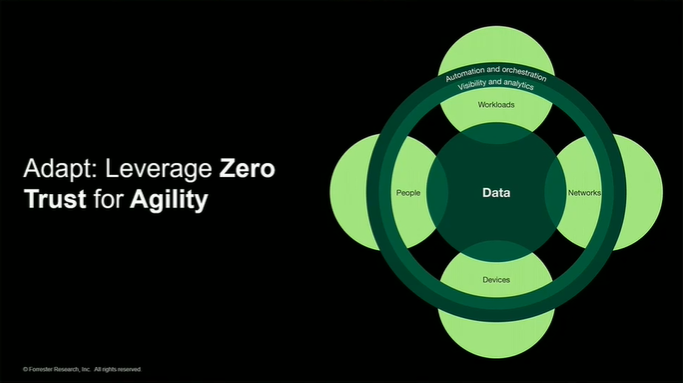You hear it over and over again: The future of computing is in the cloud. Businesses should be moving to the cloud. If you’re not in the cloud, you’re behind the times. But trusting your essential data to a cloud may sound like a dubious proposition. Below are some of the considerations when choosing whether to move your business to the cloud.
Scalability: With many cloud providers, you can scale up or down depending on the needs of your business — you only pay for what you use, much like your electrical or water bill. And the storage capacity is potentially limitless. If you need more capacity in a hurry, you can simply buy it.
Cost Reduction: For most businesses, moving to the cloud results in cost savings. You eliminate large upfront hardware expenditures, and you don’t need to buy a separate set of software packages. The desktop computers you use don’t need to be high powered or have enormous memories. And you don’t need to retain a large IT staff for maintenance and upgrades.
Less Maintenance: With less onsite hardware, your IT staff has less equipment to maintain. Ditto for software, which isn’t stored on your business’s computers. In the cloud, software can be maintained and upgraded without your intervention. You will always be working on the latest version.
Greater Access: When your documents are stored in the cloud, you don’t have to worry about leaving that critical piece of paper at home. Anyone in your organization can access any document at any time from anywhere in the world. As the workforce grows more mobile and more and more work is done on phones and tablets, this portability becomes even more essential to your business. This also allows for easier collaboration among employees in different time zones or different continents.
Disaster Recovery: Studies have found that companies that rely on the cloud recover from a disastrous situation up to four times faster than those that don’t. You don’t need to rely on laborious tape backups or devise complex DR plans; the cloud provides peace of mind and saves your staff time and money.
Green: Because you only use electricity as you need it, you don’t waste energy on idle servers. Thus the cloud is more environmentally friendly than maintaining hardware on the premises, consuming 30 percent less energy and creating the same reduction in carbon emissions. Small businesses can save even more, cutting energy use — and costs — by as much as 90 percent.
De-Siloing: Many companies suffer from siloed applications that don’t work well together and siloed information in different departments, which makes it hard to collaborate. The cloud provides a place where businesses can work off common solutions and share information. Many cloud providers have systems that are specifically designed to help you integrate your existing applications.
Security: Data security and privacy are top concerns for businesses considering a move to the cloud, but the fact is that your information might be safer in the cloud than it is On-Premises. Your business might not have even one person dedicated to data security while cloud providers devote dozens of employees and expend a lot of resources to ensure the security of their customer’s data.
Speed: First, if you have a slow Internet connection, constantly accessing the cloud could become a painful process and you might be better off sticking to local computing. Even if your connection isn’t an issue, some users find that certain applications are slower when streamed from the cloud. Naturally, this varies from provider to provider.
Integration: Depending on what cloud provider you choose, you may need to make changes to some of your software packages or company procedures so they are compatible with your provider’s. Or you may find that it’s impossible to completely move to the cloud because of the way some of your applications are configured. The underlying technology is critical. If a vendor’s product is built on a state-of-the-art platform and provides development and interface tools (as Acumatica does), integration could be easier and more architecturally sound.
Constant Internet Connection: In order to constantly access the documents you need, your computer always needs to be in touch with the Internet. This isn’t an issue in the office or your home, but it can get frustrating when you can’t access the documents you need on the train or at a restaurant or in your doctor’s waiting room. Again, this depends on the service provider.
Technical Problems: As with any other solution, the cloud doesn’t always work the way it’s supposed to. Even the best cloud providers experience outages and other technical issues. And the need to be in constant contact with the cloud can put a strain on your system. Be prepared to deal with network and connectivity issues.
Loss of Control: You need to be careful whom you entrust with your data. Be sure to thoroughly investigate your cloud provider and ask for proof of their security and backup procedures. Spell out in the contract what happens to your information if the provider goes out of business. Make sure your company still owns your data, no matter who is storing it. Aside from contractual issues, the underlying technology again is perhaps more important. Are the latest security software protocols (ISO) supported? Is the data encrypted? Where is the data stored: On a server? With the client? Both? Be certain about contractual terms and that the technical underpinning can support as robust a security architecture as needed.
All of the pros are solid, without reservations or limitation, whereas most of the cons depend upon the particular vendor chosen. The question really isn’t whether to move to the cloud but whom do you move to the cloud with? You want a vendor with a technology platform and development and integration tools that ensure seamless integration with other existing or future applications. Look for a vendor that delivers all the pros without any of the cons. There are vendors out there who can’t promise safety and security. Then there are those, like Acumatica, who can. Don’t think of them as cons but considerations you need to make before moving to the cloud.
By Jon Roskill





